
Published by
Imperial College Press
57 Shelton Street
Covent Garden
London WC2H 9HE
and
World Scientific Publishing Co. Pte. Ltd.
5 Toh Tuck Link, Singapore 596224
USA office: 27 Warren Street, Suite 401-402, Hackensack, NJ 07601
UK office: 57 Shelton Street, Covent Garden, London WC2H 9HE
British Library Cataloguing-in-Publication Data
A catalogue record for this book is available from the British Library.
A NEW ECONOMIC GROWTH ENGINE FOR CHINA
Escaping the Middle-Income Trap by Not Doing More of the Same
Copyright 2012 by Imperial College Press and World Scientific Publishing Co. Pte. Ltd.
All rights reserved. This book, or parts thereof, may not be reproduced in any form or by any means, electronic or mechanical, including photocopying, recording or any information storage and retrieval system now known or to be invented, without written permission from the Publisher.
For photocopying of material in this volume, please pay a copying fee through the Copyright Clearance Center, Inc., 222 Rosewood Drive, Danvers, MA 01923, USA. In this case permission to photocopy is not required from the publisher.
ISBN 978-981-4425-53-7
ISBN 978-981-4425-54-4 (pbk)
Printed in Singapore.
Foreword
Shangli Lin
Vice-President, Fudan University
Although China has become the second largest economy in the world and a middle-income country in the process, the challenges that China faces are more daunting than ever. From all aspects of the domestic and foreign situation, China has now reached a critical juncture in its development. Unless China is able to overcome the difficulties in undertaking further reforms in the next ten years, China would be caught in the middle income trap and be unable to become a modern country. The future course of Chinas economic development is also of great concern to the rest of the world because the socio-political-economic conditions in China will have significant impact on global economic prosperity and on global political harmony.
Fudan University is one of the best universities in China, and has deep research strength in the social sciences. Because Fudan University is located in Shanghai, which is a pioneering city in the reform of Chinas economy, Fudan is dedicated to conducting pioneering research on all the important issues in Chinas development. Among the major efforts by Fudan in this direction is the current building up of the Fudan Institute of Development Studies to promote creative research in the social sciences and to provide better analytical support to accelerate Chinas reforms and development.
The year 2012 is a critical year in determining the overall strategic direction of Chinas future policies. It is therefore most timely that the School of Economics at Fudan University and the Earth Institute at Columbia University have worked closely together to prepare this comprehensive report on Chinas economic priorities. This team of leading international economics experts is led by Wing Thye Woo (Distinguished Professor at Fudan University, Director of the East Asian Program in the Earth Institute of Columbia University, Executive Director of the Penang Institute, and Professor at the University of California, Davis), Ming Lu (Professor of Economics at Fudan University), Jeffrey D. Sachs (Professor of Economics and Director of Earth Institute at Columbia University, and Special Advisor to the United Nations Secretary-General), and Zhao Chen (Professor of Economics at Fudan University). This report contains an integrated economic policy agenda that achieves optimality in economic management by ensuring consistency among short-term demand management, medium-term supply growth, and long-term sustainable development. This economic action plan encapsulates the ambitious objective of Fudan University to promote development studies in China through the mobilization of wisdom from a worldwide network of the best scholars on each topic.
As the Fudan Universitys Vice-President in charge of the Institute of Development Studies, I am especially pleased by the high quality of this book. I am confident that the simultaneous publication of this book in English and Chinese will spread the valuable achievements of the Columbia-Fudan research team and improve the economic development practices in China.
List of Contributing Authors and Editors
Sarah Brennan
Associate Director
Lenfest Center for Sustainable Energy, Earth Institute
Columbia University, New York City, USA
Ximing Cai
Associate Professor
Ven Te Chow Faculty Scholar in Water Resources
Civil and Environmental Engineering Department
University of Illinois, Urbana-Champaign, USA
Zhao Chen
Professor and Deputy Director
China Center for Economic Studies
School of Economics
Fudan University, Shanghai, China
Gang Fan
Director, National Economics Research Institute, Beijing, China
Professor, HSBC Business School, Peking University, Shenzhen, China
Secretary-General, China Reform Foundation, Beijing, China
Professor, Graduate School of Chinese Academy of Social Sciences, Beijing, China
Jin Feng
Professor
Department of Economics
Fudan University, Shanghai, China
Liping He
Professor
Department of Finance
Beijing Normal University, Beijing, China
Lixin He
Associate Professor
Department of Public Economics
Fudan University, Shanghai, China
Klaus S. Lackner
Ewing-Worzel Professor of Geophysics
Department of Earth and Environmental Engineering,
Director, Lenfest Center for Sustainable Energy, Earth Institute
Columbia University, New York City, USA
Upmanu Lall
Alan & Carol Silberstein Professor of Engineering
Department of Earth and Environmental Engineering and
Department of Civil Engineering and Engineering Mechanics
Director, Columbia Water Center, Earth Institute
Senior Research Scientist, International Research Institute for
Climate & Society, Earth Institute
Columbia University, New York City, USA
Ming Lu
Professor
Department of Economics
Fudan University, Shanghai, China
Jeffrey David Sachs
Director, Earth Institute
Quetelet Professor of Sustainable Development, School of International and
Public Affairs
Professor of Health Policy and Management, School of Public Health
Professor, Department of Economics
Special Adviser to United Nations Secretary-General Ban Ki-Moon
Chief Strategist, Millennium Promise Alliance
Columbia University, New York City, USA
Xiaofen Tan

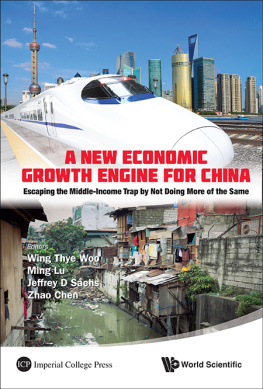

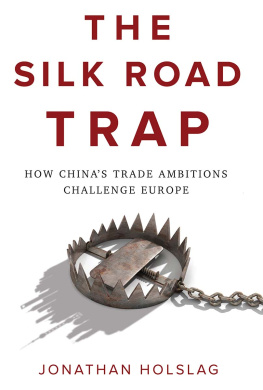
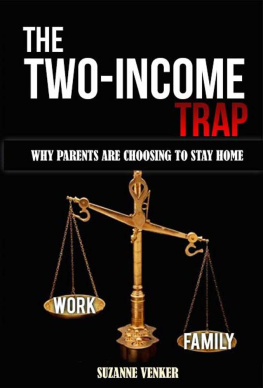
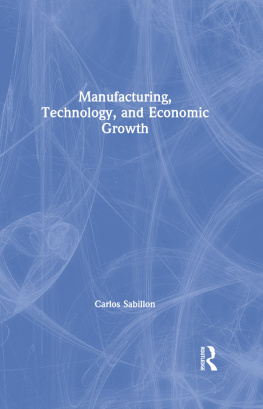
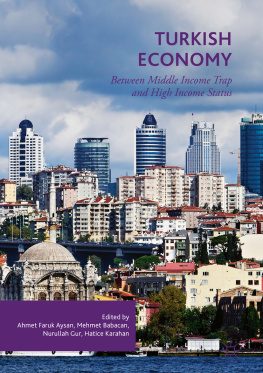
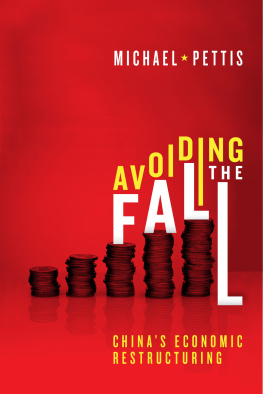


 Imperical College Press
Imperical College Press World Scientific
World Scientific